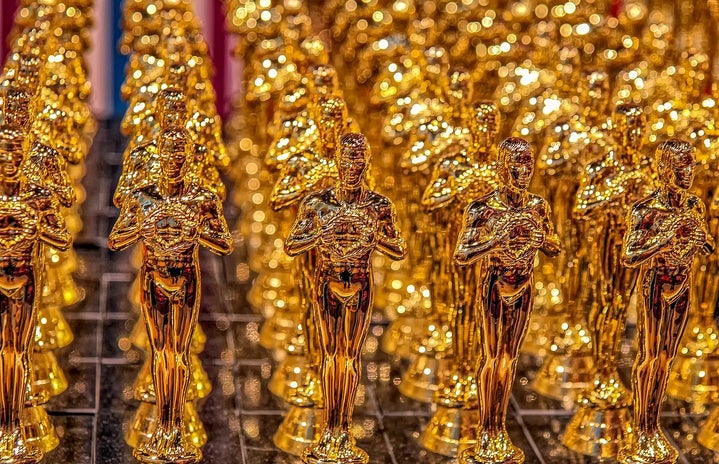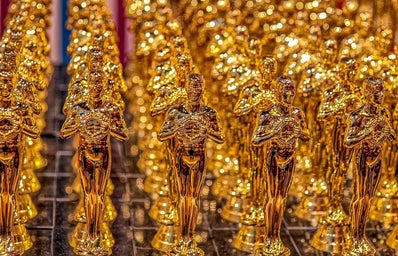Halloween wrapped up nearly three months ago, but it seems the Academy is still scared of something. Usually, we’d guess for that “something” to be a list of possible suspects: people of color, female directors, the list goes on. Although those previously mentioned phobias have seemed to manifest themselves once again into this year’s nominations, there is a longstanding fear that has made its way back into town — and it just so happens to be fear itself.
Horror has been the scapegoat of cinema for as long as the silver screen has existed. Horror has long been considered an aimless, cheap genre with no capacity for passionate storytelling. Famed horror director, Eli Roth, remarked in a recent interview that “it’s interesting how when a movie becomes too smart or too successful, nobody calls it a horror film anymore…something about horror ghettoizes it.” Long story short, you’re not going to win Oscars with a horror film.
Since its beginning in 1929, horror representation at the annual Academy Awards has been virtually nonexistent. There have been a few exceptions, however. For example, the classic Silence of the Lambs took home an amazing five Oscar statues in 1992, including the one for Best Picture. And who could forget about one of the most famous horror films of all time, The Exorcist, that earned itself two statues in 1974. Those awards were given out a good while ago, but lucky for us in 2018 Jordan’s Peele’s Get Out snagged the Oscar for Best Original Screenplay and was also nominated for Best Picture. However, these are some of the only instances of horror recognition in Academy Awards history. Of the 555 films ever nominated for Best Picture, only six of them have been horror movies and 2020, by no surprise, is another vacant year, despite fantastic candidates arising from the genre.
Jordan Peele’s sophomore horror feature, Us, released in March 2019 and gave us one of the most dynamic and technically challenging performances in film to date, performed by none other than Academy Award winner, Lupita Nyong’o. Us follows Adelaide Wilson (Nyong’o) and her family as they encounter a group of evil doppelgangers and must face their own fears — and pasts — in order to defeat them. Nyong’o plays both the character of Adelaide and her menacing look alike, Red. These characters are polar opposites in every way, yet share many internal desires and perspectives. Red, with a raspy voice and eyes unforgiving, is the antithesis of cautious, family-oriented Adelaide. To be able to portray either of these characters would be a challenge, but both of them? In the same movie? Having to perform to an invisible counterpart? Indescribable.
I personally have seen this film three times in theaters and Red’s monologue in the initial break-in sequence is some of the most extraordinary acting I have ever seen in my entire life. So, why didn’t the Academy agree? I’ll give them the benefit of the doubt and chalk this omission up to being a fluke. Let’s look at another example.
Ari Aster’s twisted daydream Midsommar hit theaters back in July 2019 and received massive praise for its ability to frighten in broad daylight. The film’s star, newcomer Florence Pugh, gave an outstanding performance in the difficult lead role. The emotional depth displayed in her portrayal of said-role was unprecedented to see from an actress with such limited training and brief filmography. Not only were the performances noteworthy, the film’s cinematography, set design and screenplay were some of the best to come out of 2019. Florence Pugh managed to snag a Best Supporting Actress nomination this past Monday, not for her stellar work in Midsommar, but for her role in the recent adaptation of Little Women.
This situation creates a sort of paradox. We could argue that not nominating Nyong’o is because of racial bias (which could still be true), but she has been the recipient of an Academy Award in the past, which proves that her reputation precedes her. On the flipside, Academy no-namer Pugh could have been ignored altogether, but her nomination for Little Women proves she has been seen. So, they like these girls. That’s not the issue. Maybe it’s females in horror? Well, if you look at the fact that Willem Dafoe and Robert Pattinson’s performances in The Lighthouse were also snubbed this year, the gender argument loses heat. So, this isn’t an issue of gender nor ignorance — the Academy knows these movies, these actors and what they have to offer. The issue lies in one thing and one thing only —The Academy does not believe the horror genre to be a film category that produces anything of merit, especially not in the acting department.
The Academy consists of over 7,000 film professionals and is separated into 17 branches representing different disciplines of filmmaking. Gaining membership into the Academy is not an easy feat — one must either win an Oscar or be nominated by an existing member and then be approved by the Academy board. As of 2016, this body was still primarily white and male. I’ve always described Hollywood as “one giant friend group” and the Academy is no different. This would describe the existing group mentality that has expressed itself in the nomination patterns year after year. Hell, the phrase “Oscar bait” is a term commonly used to describe a typical film format that Academy members tend to vote for — that’s how predictable they are. There was a glimmer of hope last year, however, when the Academy invited 842 new members, many of whom are young and racially diverse individuals. However, their weight was not enough to change the course of the Academy’s vessel, one that has trudged along the same, repetitive journey for nearly a century.
Times have changed. We are living in a world without boundaries for filmmaking — a world home to countless incredibly talented directors, actors and production members that are telling unique and transcendent stories inside the horror genre. Every year, the bar continues to rise and the genre moves farther away from its long-held amateur reputation and the members of The Academy need to recognize that. The Academy itself has become so suffocated by its pursuit of prestige that it has become massively out of touch with modern reality. Hopefully one day we will wake up on that Monday in January to a more inclusive, diverse and fair list of nominees and we’ll all stop feeling this overwhelming sense of Déjà vu.



